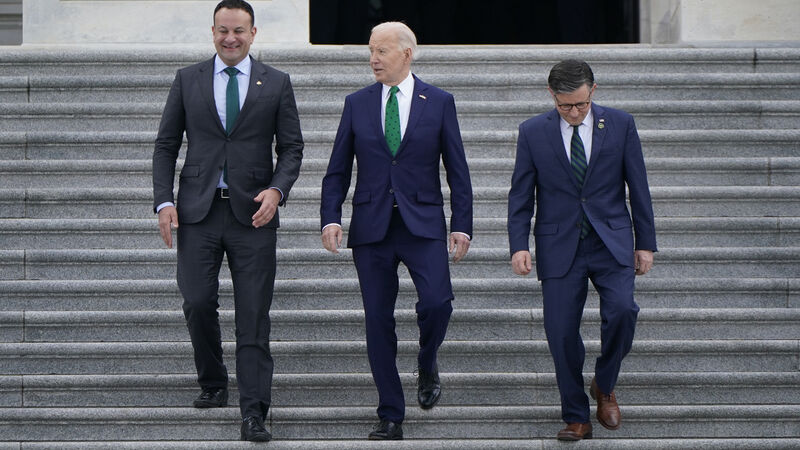Irish Examiner view: High water mark for relationship between Ireland and the US

Leo Varadkar, US president Joe Biden, and speaker of the House of Representatives Mike Johnson leaving the annual friends of Ireland luncheon on Capitol Hill in Washington, DC during the Taoiseach's visit to the US for St Patrick's Day.
















